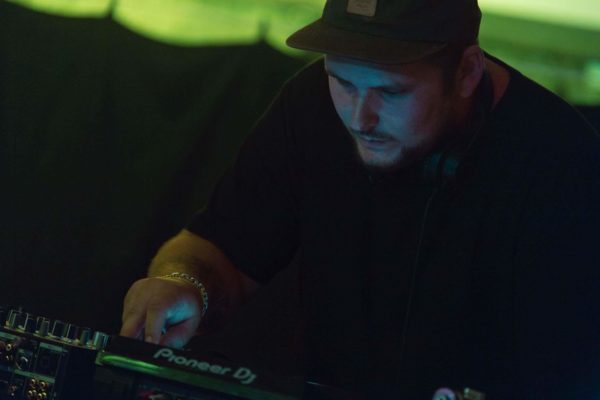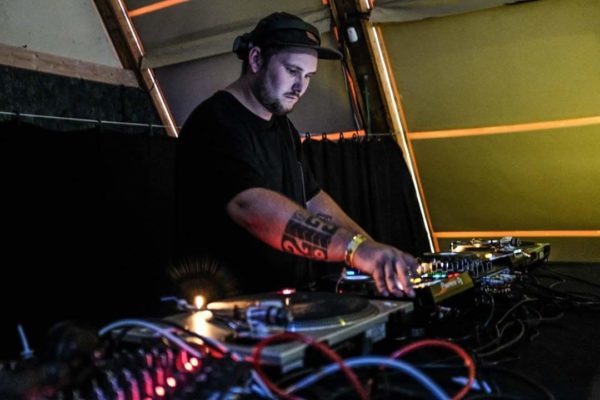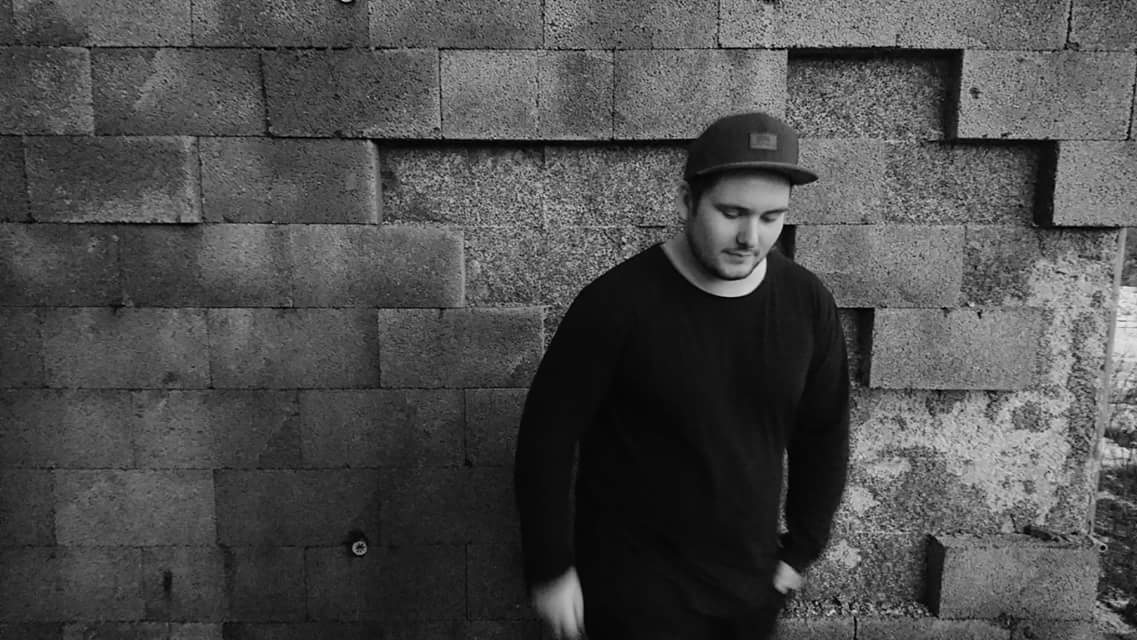The first time Fredrik Bekkåssen put on a Techno event on in Oslo, the police were waiting for him. An hour after the undisclosed Bislett opened its doors the authorities rolled in,checking through every little particular of the event to ensure it was all legal and above board. It’s the type of official formality, bordering on harassment that has become commonplace in Oslo. With an inordinate police presence at nearly every Techno event in the city, there appears to be some unsubstantiated agenda against this music and its community currently taking root. Shutting down events for minor, banal infractions like the amount of security people on the door or the cash register system, people like Fredrik take an exorbitant risk when they put a music event together with a Techno profile.

On this particular occasion however Frederic and his brother, Mats Bekkåsen we’re ready for them. “We had everything in order” says Fredrik with a smile, leaving the police no choice but to let the event go ahead.
This is just one example from a Techno scene in Oslo that is currently under scrutiny from authorities and has which has, in the last year seen Redrum and Naboens Techno Kjeller disappear from a very small dedicated scene and many venues completely refrain from adding Techno to their listings. Fredrik Bekkåsen can certainly “feel the pressure” when venues won’t let him rent a space with the usual adage “this music doesn’t fit our profile.” “If people will just give us a chance”, he urges. “All I want is to put events together so I can show what I can do, but it’s not easy. It draws the energy out of what you’re doing when you meet a wall like that.”
Swinging from the hammock at Jæger, there’s a determination and zeal of a young man in Fredrik’s that’s perfectly counterbalanced by a maturity that far exceeds his 26 years. In the last two years he’s become a pronounced presence in Oslo’s electronic music scene appearing regularly at Villa and Jæger, often alongside local Techno stalwarts like Jokke and O/E, and opening for international acts like Dax J last year and Shed this week at Jæger. From DJing his gone into production too with an original release on the Somerøya label in 2017 and a remix of Terje Sæther & Robert Solheim’s Carmen, which came out just last month.
A weighty percussive track stifling under weight of its own atmosphere, Fredrik offers a modern Techno interpretation of Sæthre and Solheim’s psych-disco-tech original. For an artist and a DJ that’s “only been doing this for three years”, and still considers himself “a kid”, the results are staggering and within the context of Oslo’s choking Techno scene it’s even more impressive.
Fredrik’s route to Techno isn’t an obvious one. Growing up in Enebakk, in the rural central outskirts of Oslo, Fredrik grew up in a family of musical enthusiasts. His oldest brother, a stage lighting technician, took a very young Fredrik to his first electronic music concert when Scooter came to Oslo in the early 2000’s. His father, who has “always been into music” without “being a nerd” about it, encouraged Fredrik to pick up the drums at an early age and even though the older Mr. Bekkåsen was “more of a Pink Floyd guy”, he kept an open mind when Fredrik “served him all the hard stuff” and joined a metal band. It was Fredrik’s middle brother, Mats however that would pave the way for Fredrik into the world of Techno when he acquired a soundsystem and rented it out to Void for a Musikfest event last year.
When O/E and Jokke realised Fredrik was a Techno DJ too, they asked him to join them for that event, cementing Fredrik’s name in one of Oslo’s most adroit Techno institutions.
 Fredrik didn’t go straight from metal to Techno however, but drumming played an integral role in th DJ prowess he displayed early on. Fredrik’s acute ear for rhythm took to DJing very naturally and as a tram goes by in the background by way of serendipitous illumination, Fredrik explains; “I can hear the tram go by and I can immediately feel the rhythm.” He “always knew what DJing was about” because of his older brothers and when he turned 18 and “started partying” DJing came from Fredrik’s desire “to perform music”. He bought “some cheap decks” and through a period of “listening to commercial, shit music” started DJing.
Fredrik didn’t go straight from metal to Techno however, but drumming played an integral role in th DJ prowess he displayed early on. Fredrik’s acute ear for rhythm took to DJing very naturally and as a tram goes by in the background by way of serendipitous illumination, Fredrik explains; “I can hear the tram go by and I can immediately feel the rhythm.” He “always knew what DJing was about” because of his older brothers and when he turned 18 and “started partying” DJing came from Fredrik’s desire “to perform music”. He bought “some cheap decks” and through a period of “listening to commercial, shit music” started DJing.
With every good DJ there’s always that desire to dig deeper, and it didn’t remain a latent desire in Fredrik. Continually going harder and darker, Fredrik eventually “found Techno” and the two became inseparable.
But why Techno? “I think it’s the hardness of it” comes Fredrik’s immediate response. “There’s a simple rawness that doesn’t need to be that complex to drive it.“ He cites Oscar Mulero and polegroup as examples of the kind of sound he likes, and it’s certainly an influence you can hear in Fredrik’s original track “Shroud”. The brooding atmospheres and visceral percussive arrangement sounds incredibly contemporaneous to anything coming out of the European mainland today.
“The sound in my head of I want to make is very hard fast and atmospheric… and not that melodic”, says Fredrik. “That’s the hard thing making easy music sound good and sound design is a huge part of it.” Fredrik bides his time with his musical output, and although he might work on a track every spare moment he has from his home studio, he is very selective of the music he puts out. “I’m never happy”, he says with a wry smile and insist “it needs to come naturally”. He’s looked to Terje Sæther often for inspiration and advice as “the guy that got me into producing”, but even objectively it’s not difficult to discern there is a natural talent or predisposition for this music in Fredrik.
It’s a talent that’s been cultivated by those around him, chief among them, his older brother, Mats and his soundsystem, which has become an integral facilitator to Fredrik’s career. It was the same sound system that got Fredrik into Void’s Musikfest stage and it’s remained a prominent fixture at the events Fredrik hosts like that one in Bislett. It’s “some old huge soundsystem” Mats bought from a man that also rents out bouncy castles, but it makes an impressive statement wherever it goes. Fredrik remembers that Bislett event fondly as just a “wall of speakers” with little more than a meter’s wiggle room between the speakers and the DJ booth.
The system allows Fredrik to put up events when venues turn him down for fear of unwanted attention from the authorities and it’s through events he’s hosted with the soundsystem that he’s played the most. “If I haven’t put out the events myself, I probably would not have played as much” he considers for a moment, but that’s not to suggest this will change very soon.
As Techno’s popularity grows on an international scale, more young producers and DJs like Fredrik are proliferating the genre as a bonafide artistic practise that’s made significant cultural contributions to the surrounding musical environment and surely it would be impossible for Oslo to ignore its global impact much longer. What needs to happen in Oslo according to Fredrik is that “people need to do it professionally” for the dominating sentiment about Techno to change. He suggests things like “not hiring your friend as a bouncer” and to take the time to put together a “good event”.
Fredrik it seems to me is in the perfect position to sway authoritarian opinion. As a young, motivated artist with an amiable personality (who’s held down a day-job since he was 17) he does well to contradict the kind of dogged preconceptions that are embedded today in an archaic, conservative public opinion of Techno in this city. I put it to Fredrik that he is the prime candidate for changing public perceptions and that he should start a Techno label to that effect, but behind a coy smile he says” I don’t think I’m the right person to start it… not yet.”
For the moment he’s “just having fun with it” and he’s happy for it to “come naturally” both in the booth and in the studio. He’s really looking forward to opening up for Shed this weekend alongside his “mentor” Jokke, which will be a “little different” to the harder stuff he usually plays. “It’s a challenge”, he says “but that’s the fun part of it.”

